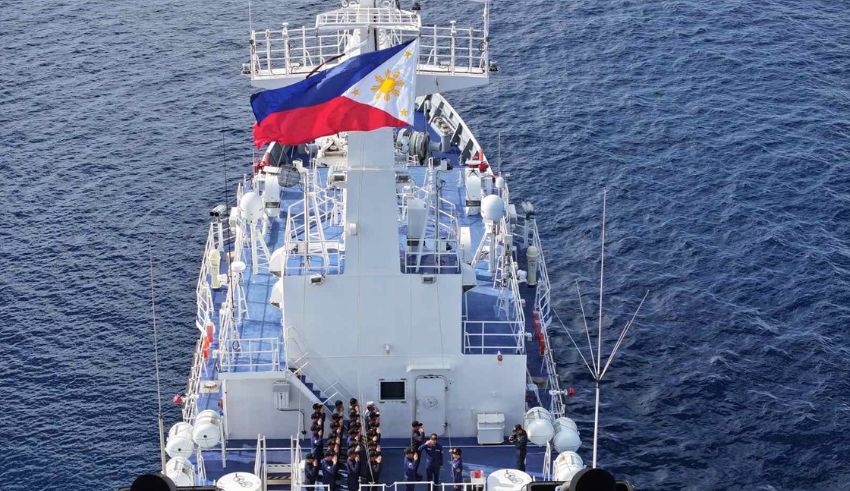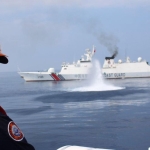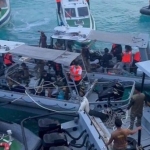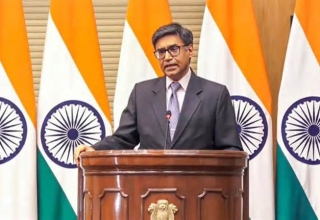
The Philippine administration has indicated its will to have communication with China in response to the recent increase of tensions in the West Philippine Sea. The main innovations are as follows:
At the Second Thomas Shoal, a major conflict happened that left eight Philippine navy men injured. Chinese vessels stopped a Philippine resupply effort to the Second Thomas Shoal in the Spratly Islands during a conflict with Chinese soldiers.
When a China Coast Guard (CCG) vessel collided with a Philippine cargo ship, the matter got quite hot. The conflict did not stop there; Chinese soldiers boarded other small Philippine vessels, aggravating the already tense situation. The CCG defended their activities by saying that the Philippine warship disregarded repeated warnings and behaved unprofessionally, which resulted in the clash.
The incident at the Second Thomas Shoal is not an isolated occurrence but rather a part of a larger trend of forceful operations by Chinese forces in the South China Sea, a territory rich in overlapping territorial claims and strategic significance. This episode emphasizes the explosive character of maritime disputes in the area and the possibility for such interactions to turn into more important confrontations.
Global Reaction
The world community has responded powerfully to this episode. Emphasizing that China’s “dangerous and deliberate” activities clearly disregarded the safety of Filipinos and violated accepted international regulations controlling marine activity in the South China Sea, the U.S. State Department denounced China’s actions. The American comment emphasized the need of preserving rule of law and freedom of navigation in international seas.
Australia and Canada also voiced worries over the CCG’s aggressive behavior, classing them as “dangerous and destabilizing.” These nations, which emphasize the wider consequences of China’s activities on regional stability and world marine standards, have urged moderation and respect of international law. U.S. Secretary of State Anthony Blinken underlined even further how China’s actions compromise regional peace and stability and demanded a coordinated worldwide reaction to preserve the rules-based order in the South China Sea.
Diplomatic Efforts
The Philippines is dedicated to settle the matter diplomatically even if the tensions are growing. Historically, both countries have promised to enhance marine communication about contested locations like the Second Thomas Shoal in order to stop such events from become more frequent. Still, the current events have tested these accords.
Keep Reading
Given the recent conflict, the Philippines called the Chinese Deputy Chief of Mission to officially object to the forceful operations carried out by Chinese forces. Declaring their territorial claims and advocating a de-escalation of tensions, the Philippines insisted on the immediate removal of Chinese boats from Ayungin Shoal. This diplomatic démarche is a component of a larger plan aiming at a peaceful settlement via recognised international diplomatic channels.
The government of the Philippines has underlined again its dedication to communication and amicable dispute settlement. The Philippines hopes to establish its rights in the West Philippine Sea by keeping a strong posture on sovereignty and territorial integrity, therefore avoiding armed conflict. Using international support and legal frameworks—including the 2016 Permanent Court of Arbitration decision, which invalidated China’s broad claims in the South China Sea—the government’s approach calls for leverage.
Looking Ahead
The Philippines is strongly maintaining its sovereignty in the West Philippine Sea and is relentless in its search of peaceful solutions through communication as the circumstances evolve. Notwithstanding major obstacles from aggressive efforts by China, the government’s dedication to diplomacy seeks to alleviate tensions and advance stability in the area.
The road ahead calls for cautious navigating of diplomatic, legal, and strategic aspects. Supported by its foreign friends, the Philippines will keep pushing for a rules-based order in the South China Sea, trying to strike a compromise between regional stability and national interests. Supported by international law and multilateral support, the continuous attempts to involve China in constructive conversation constitute a key tactic in handling this multifarious and dynamic maritime conflict.




























